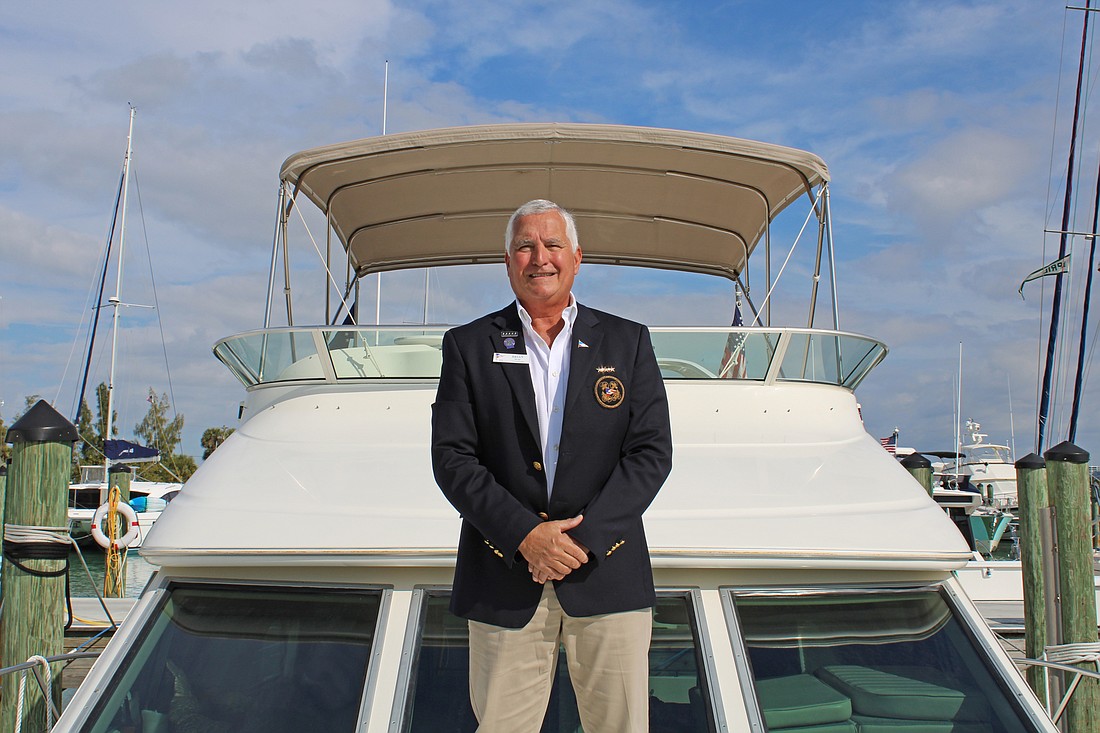- December 19, 2025
-
-
Loading

Loading

When Brian Will was a child, his siblings had an affinity for Dr. Seuss' "The Cat in the Hat.''
He, on the other hand, was paging through an encyclopedia's entries on airplanes.
So it stands to reason that Will, who moved to Sarasota seven years ago, would go on to serve in the U.S. Air Force, a stint with Boeing and American Airlines.
And just last month, the 65-year-old was named commodore of the Sarasota Yacht Club.
“The magnificent machines that they are, the freedom of being up in the sky … it’s tremendous satisfaction,” Will said.” It was also a sense of service to everyone that I knew. The sense that you're serving the country, your community, family, all those things sort of blended in my mind.”
That aerial interest stayed with him as he became a Boy Scout, a student at the Manhattan College in New York, flight school, and finally as a fighter pilot through most of the 1980s. Even now though, he remembers the first time he was in a cockpit, feeling the craft lift into the air. In that moment, he said he could hear the angels sing.
“Words (today) maybe lose their meaning … but it was a moment of pure joy,” Will said. “ You plug that airplane in full afterburner and this thing turns into a homesick angel. You are just rocketing.”
One of the few other times, though, that Will heard the angels sing was when he met his wife Martha, who was also in the military, on his first day in South Korea 41 years ago. He feels as far as first dates go, going through gas mask training and being gassed together is a tough one to beat. They’ve been together ever since.
Will had been tapped to be a possible candidate for the astronaut program, and went back to school to get his master’s degree at the NASA Langley Research Center. The astronaut candidacy didn’t shake out, and Will took a hard look at he and his wife’s schedules. By this point they had young children and with both of them in active duty, Will said there was a real chance they would have to be apart for long periods in time.
The air force pilot went a different way — he was offered a job with a different kind of flying with American Airlines and took it. Where he once was flying solo in state-of-the-art fighter jets, Will instead piloted Boeing 737 and 777 airliners with hundreds of people on board.
“The performance on the aircraft is obviously significantly different, going from an aircraft that could fly twice the speed of sound to an aircraft that flies only fraction of that was, was interesting,” Will said. “By the same token, the degree of precision that's required as a commercial pilot has so many more moving parts … You now have one to 300 people behind you, passengers and crew that are counting on you to do everything right at the right time to be safe.”
His time with American Airlines was like being part of a family. Slowing down the speed he was used to, but learning to think about and care for a much larger number of people while flying, was an enriching experience for the pilot. He had brushes with power and fame as well when he piloted president-elect George W. Bush from Texas to D.C. before the inauguration in 2001.
That time eventually transitioned to a new role — Director of Flight Operations for American Airlines, where he oversaw thousands of flights throughout the country a day. A critical time for Will, and he believes the aviation industry as a whole, was the fall of 1991 in Vail, Colo., where he helped develop a system that added an additional level of precision to take offs and landings from tricky airports.
The tech-based work has carried through to today, where Will has continuously worked to tweak and improve space-based navigation to be safer for pilots and passengers alike. He’s only been retired for half a year but is more than pleased with the legacy he’s left.
“The safety is phenomenal and the efficiency is phenomenal,” Will said. “This is all great stuff and I spent about 25 years of my career working on those things. That was a lot of fun.”
While all this was happening, Will and his wife were growing more and more involved with Sarasota and the yachting hobby. While boats and aircraft travel markedly different terrain, the inner guts of how they operate are similar. He says it’s in a pilot’s DNA to obsess and pore over ever detail and piece of information about an aircraft, and he feels the same way diving into the inner workings of his boat.
His favorite part is when he’s out alone on the water — he says it feels the exact same as when he’s soaring through the air. Now with retirement in front of him, and a new organization he’s in charge of, he just wants to keep working for the people around him.
“I've always seen myself as serving somebody else,” WIll said. “I was serving the military, my country, American Airlines … I honestly believe that these positions these leadership positions, need to be used to, to make sure that the members are experiencing the club for everything that they want it to be. “